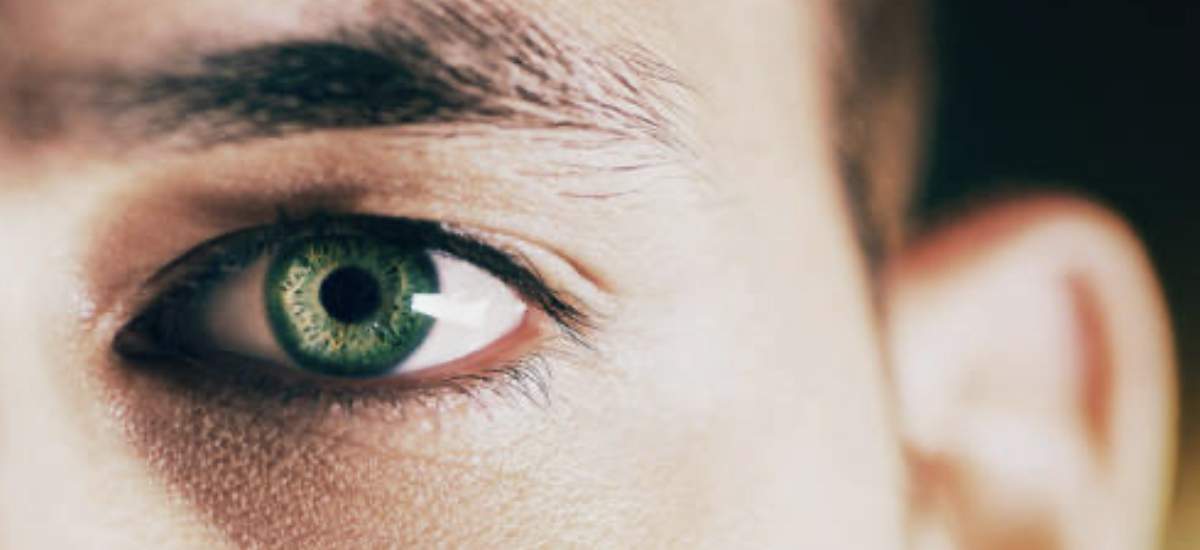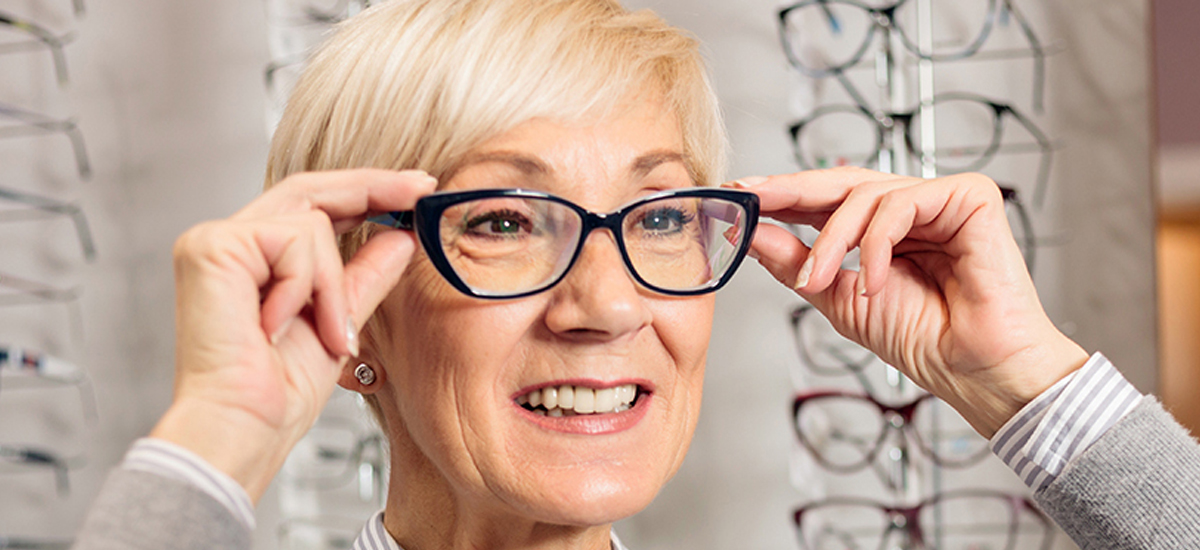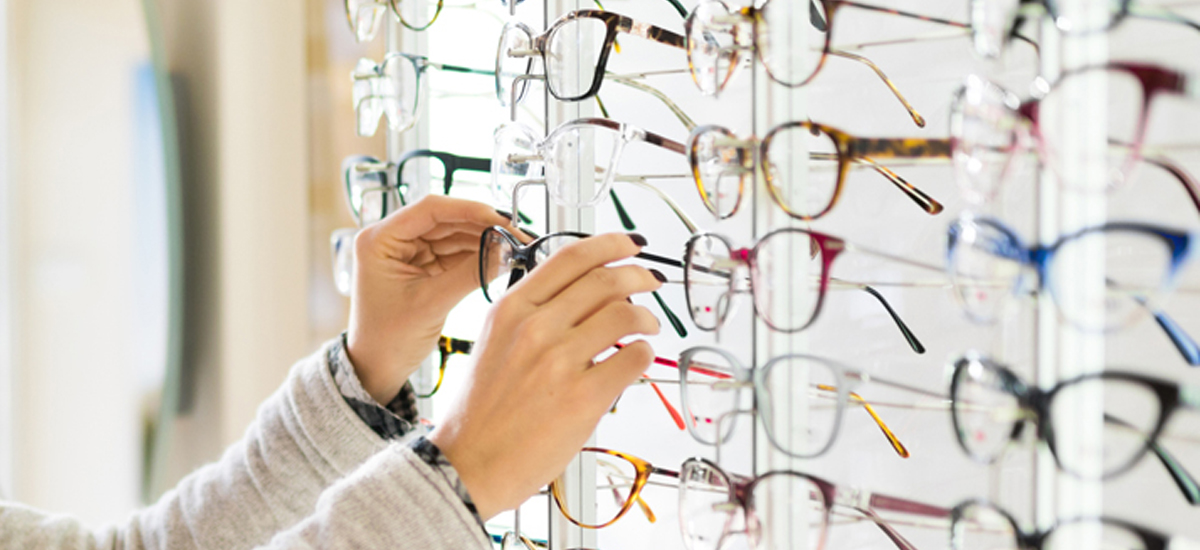Eyeglasses Guide
-
When Should You Get Progressive Lenses?
 Many types of multifocal lenses have a line through the center that distinguishes prescriptions. Since this eyewear provides excellent optical coverage, the line doesn’t usually bother the wearer.
However, others prefer glasses without a line (for cosmetic purposes) and the same vision correction that bifocals and trifocals provide. That
Read more...
Many types of multifocal lenses have a line through the center that distinguishes prescriptions. Since this eyewear provides excellent optical coverage, the line doesn’t usually bother the wearer.
However, others prefer glasses without a line (for cosmetic purposes) and the same vision correction that bifocals and trifocals provide. That
Read more...
-
5 Things You Need to Know Before Buying Progressive Lenses
 Progressive lenses give you clear vision from near to far, just like you’ve always wanted. Unlike with bifocals, you won’t have to worry about lines or drastic changes in vision from looking through one part of the lens to the other. Instead, you can enjoy a seamless transition, as the lenses magnify gradually toward the bottom.
There
Read more...
Progressive lenses give you clear vision from near to far, just like you’ve always wanted. Unlike with bifocals, you won’t have to worry about lines or drastic changes in vision from looking through one part of the lens to the other. Instead, you can enjoy a seamless transition, as the lenses magnify gradually toward the bottom.
There
Read more...
-
How to Choose Eyeglasses
 Learning how to select frames for your prescription glasses might seem like a daunting task, but it doesn’t have to be. There are a few easy ways to determine which frames would best flatter your face and show off your style and personality.
Here is how to select frames:
Step 1: Identify your face shape
Identifying your face
Read more...
Learning how to select frames for your prescription glasses might seem like a daunting task, but it doesn’t have to be. There are a few easy ways to determine which frames would best flatter your face and show off your style and personality.
Here is how to select frames:
Step 1: Identify your face shape
Identifying your face
Read more...
-
Can Your Eyes Heal From Sun Damage?
 Have you ever thought about why you must wear sunglasses when outdoors? UV protection is the answer. When you’re in the midst of too much UV light (found in sunlight), your eyes can get sunburned or worse.
Sunburned eyes are called photokeratitis. Don’t stress too much if you get this condition, though, as it’s common after spending short
Read more...
Have you ever thought about why you must wear sunglasses when outdoors? UV protection is the answer. When you’re in the midst of too much UV light (found in sunlight), your eyes can get sunburned or worse.
Sunburned eyes are called photokeratitis. Don’t stress too much if you get this condition, though, as it’s common after spending short
Read more...
-
Why Do I Have Pain Behind My Right Eye?
 If you ever have eye pain, it’s important to call your eye doctor right away. Your eye doctor can tell you the underlying cause of your eye pain and recommend a treatment plan.
Anytime you call an optometrist about eye pain, here are some questions you may need to answer:
Which eye hurts?
Are you experiencing stabbing pain behind your
Read more...
If you ever have eye pain, it’s important to call your eye doctor right away. Your eye doctor can tell you the underlying cause of your eye pain and recommend a treatment plan.
Anytime you call an optometrist about eye pain, here are some questions you may need to answer:
Which eye hurts?
Are you experiencing stabbing pain behind your
Read more...
-
Why Does Everything Seem Darker in One Eye?
 Vision changes can be anything from sudden blurry vision to darkened vision. If you experience something drastic like this, it should be reported to your eye doctor immediately. That is the best way for your optometrist to assess the underlying cause and help you come up with a plan to restore your eyesight to normal.
The American Optometric
Read more...
Vision changes can be anything from sudden blurry vision to darkened vision. If you experience something drastic like this, it should be reported to your eye doctor immediately. That is the best way for your optometrist to assess the underlying cause and help you come up with a plan to restore your eyesight to normal.
The American Optometric
Read more...
-
What Are the Types of Lens Coatings?

There are many types of optical lenses, and at For Eyes, you can add a special coating to each one of them.
Read more... -
What Are the Advantages and Disadvantages of Trifocal Lenses?
 How old you are has a huge impact on your vision. You may need to get a new prescription on occasion to ensure you have the ultimate visual clarity, especially if you have any current eye conditions, such as presbyopia. If you require multiple prescriptions as a result of having both distance and near vision problems, your eye doctor may prescribe
Read more...
How old you are has a huge impact on your vision. You may need to get a new prescription on occasion to ensure you have the ultimate visual clarity, especially if you have any current eye conditions, such as presbyopia. If you require multiple prescriptions as a result of having both distance and near vision problems, your eye doctor may prescribe
Read more...
-
Is There Such a Thing as No-Line Bifocals?
 Do you ever find yourself keeping a distance between your favorite book and your face? Perhaps, your eyes feel tired after working on a close-up project for long periods. If this sounds like you, you might have presbyopia, a refractive error that’s common in adults over age 40.
A comprehensive eye exam is vital to diagnose presbyopia, and
Read more...
Do you ever find yourself keeping a distance between your favorite book and your face? Perhaps, your eyes feel tired after working on a close-up project for long periods. If this sounds like you, you might have presbyopia, a refractive error that’s common in adults over age 40.
A comprehensive eye exam is vital to diagnose presbyopia, and
Read more...
-
Is 20/10 Vision Good?
 Your visual acuity can affect many things in your life, from how you perceive images to how close you need to be to see them in the first place. Eye doctors use 20/20 vision as a standard for the average person’s vision, and when performing a comprehensive eye exam on your eyes, they’ll use it for you, too.
With 20/20 vision being a baseline,
Read more...
Your visual acuity can affect many things in your life, from how you perceive images to how close you need to be to see them in the first place. Eye doctors use 20/20 vision as a standard for the average person’s vision, and when performing a comprehensive eye exam on your eyes, they’ll use it for you, too.
With 20/20 vision being a baseline,
Read more...







